
The UNESCO-UNEVOC International Centre: Who We Are | What We Do | Working With Us | Get in Touch
The UNEVOC Network: Learn About the Network | UNEVOC Network Directory
For Members: UNEVOC Centre Dashboard
Thematic Areas: Inclusion and Youth | Digital Transformation | Private Sector Engagement | SDGs and Greening TVET
Our Key Programmes & Projects: BILT: Bridging Innovation and Learning in TVET | Building TVET resilience | TVET Leadership Programme | WYSD: World Youth Skills Day
Past Activities: COVID-19 response | i-hubs project | TVET Global Forums | Virtual Conferences | YEM Knowledge Portal
Our Services & Resources: Publications | TVET Forum | TVET Country Profiles | TVETipedia Glossary | Innovative and Promising Practices | Toolkits for TVET Providers | Entrepreneurial Learning Guide
Events: Major TVET Events | UNEVOC Network News
On 2 July 2015, UNESCO-UNEVOC will convene a panel discussion entitled ‘TVET and Heritage Skills – Can TVET Help Preserve Heritage?’ as a side-event at the 39th session of the World Heritage Committee![]() . One of the aims of the session is to raise awareness of the crucial role TVET can play in supporting efforts linked to the protection, conservation, presentation, and rehabilitation of cultural and natural heritage properties, the cornerstones of the heritage sector. The session will consider the current mismatch between the supply and demand for skills in the heritage sector, and will stimulate debate on what the skills needs of the sector actually are and how TVET might address those needs.
. One of the aims of the session is to raise awareness of the crucial role TVET can play in supporting efforts linked to the protection, conservation, presentation, and rehabilitation of cultural and natural heritage properties, the cornerstones of the heritage sector. The session will consider the current mismatch between the supply and demand for skills in the heritage sector, and will stimulate debate on what the skills needs of the sector actually are and how TVET might address those needs.
The session is open to all registered participants of the 39th session of the World Heritage Committee.
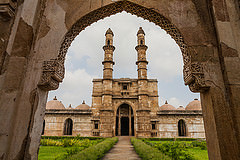
Clearly, the upkeep of such a vast number of sites across the world stands in need of well-trained labour force that can tend to the unique challenges associated with their preservation and conservation. In this respect, Article 22 of the Convention Concerning the Protection of the World Cultural and Natural Heritage highlights the necessity of providing technicians and skilled labour to ensure the protection, conservation, presentation and rehabilitation of humanity’s shared cultural and natural heritage. In many countries, however, the number of qualified craftspeople does not meet the demand in the heritage sector. More challenging, still is the fact that many developing countries have insufficient resources to train individuals for the heritage sector.
This mismatch between the supply and demand for skills in the heritage sector can be tackled through effective technical and vocational education and training (TVET). In this respect, TVET can play an important role in providing the necessary training to equip individuals with the skills, knowledge and attitudes necessary for heritage. For TVET programmes to be effective, however, the knowledge, skills and competencies specifically required for heritage stand in need of further articulation. Such a mapping can help transform existing vocational training programmes as well as contribute to the creation of new ones that provide the labour force with skills and abilities that correspond entirely to those required in the heritage sector.
The panel session being held during the 39th Session of the World Heritage Committee is intended to address these issues.
Objectives
The overarching objective of the panel is to raise awareness of the importance of skills development for the heritage sector and to provide an enriching and enabling environment to develop fresh perspectives on TVET’s role in sustaining heritage. In this respect, the session aims to:
The panel session will address these overarching aims by focusing on three specific themes.
1. Policy and Advocacy
Developing new vocational training programmes that correspond to the skills-needs of the heritage sector and enhancing existing TVET programmes to better serve heritage require coherent, well-coordinated policy. Among the questions to be discussed are: what can be done at the policy level to facilitate the provision of skilled labour to the heritage sector? Are there any existing policies that specifically promote skills development for the heritage sector and that could serve as an example for other countries or settings?
2. Institutional Capacity Building
Increasing institutional capacity can allow for more joint training programmes in the field of heritage. Panellists will discuss how North-South cooperation can facilitate the conservation and preservation of heritage properties. An example of North-South cooperation between academic institutions will be elaborated in order to highlight aspects of TVET that could enrich academic programmes.
3. Knowledge Sharing
As a final theme, panellists will consider how knowledge and experience from the field of TVET for heritage can be shared. In this respect, a number of promising practices that underscore the role of skills in preserving heritage will be shared. The questions to be addressed include: how can we integrate traditional community skills and inherited knowledge into heritage training provisions? How can we mainstream entrepreneurial skills within heritage skills provision?
The panel brings together the following experts in the field of heritage and skills:
Moderator
Shyamal Majumdar, Head of UNESCO-UNEVOC
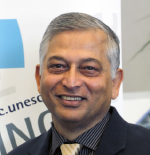 Mr Shyamal Majumdar is an expert for technical and vocational education and training and has worked in various capacities and on international assignments before joining UNESCO as the Head of UNESCO-UNEVOC International Centre for Technical and Vocational Education and Training in 2011. He was Director-General of the Colombo Plan Staff College for Technician Education, an intergovernmental organisation for human resource development in Asia. He also headed the computer science and engineering department of the National Institute of Technical Teacher Training and Research in Kolkata, India, where he is originally from. Majumdar holds a doctoral degree in educational computing and has strong expertise in technical teacher training, information and communication technologies and green skills.
Mr Shyamal Majumdar is an expert for technical and vocational education and training and has worked in various capacities and on international assignments before joining UNESCO as the Head of UNESCO-UNEVOC International Centre for Technical and Vocational Education and Training in 2011. He was Director-General of the Colombo Plan Staff College for Technician Education, an intergovernmental organisation for human resource development in Asia. He also headed the computer science and engineering department of the National Institute of Technical Teacher Training and Research in Kolkata, India, where he is originally from. Majumdar holds a doctoral degree in educational computing and has strong expertise in technical teacher training, information and communication technologies and green skills.
Panellists
Mario Santana-Quintero
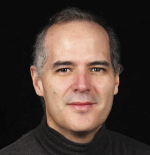 Mr Mario Santana-Quintero is a Board Member of International Council on Monuments and Sites (ICOMOS) and an Assistant Professor at the Department of Civil and Environmental Engineering, Carleton University teaching courses on Architectural Conservation and Sustainability. He is also an associate faculty at the Carleton Immersive Media Studio Lab (CIMS). He has an architectural degree, holding a master in Conservation of Historic Buildings and Towns from the R. Lemaire International Centre for Conservation, University of Leuven, where he is currently a visiting professor. Recently, he has been teaching at the Universidad Central de Venezuela, Universidad de Guadalajara (Mexico) and Universidad de Cuenca (Ecuador). Previously, he was a Professor at the University College St. Lieven, a lecturer at the University of Aachen RWTH and at the University of Pennsylvania for the Historic Preservation Programme between 2006 and 2011. Along with his academic activities, he is the former President of the ICOMOS Scientific Committee on Heritage Documentation (CIPA). Furthermore, he has collaborated in several international projects in the field of heritage documentation and capacity building for UNESCO, The Getty Conservation Institute, ICCROM, World Monuments Fund, UNDP, Welfare Association, and the Abu Dhabi Tourism and Cultural Heritage Authority.
Mr Mario Santana-Quintero is a Board Member of International Council on Monuments and Sites (ICOMOS) and an Assistant Professor at the Department of Civil and Environmental Engineering, Carleton University teaching courses on Architectural Conservation and Sustainability. He is also an associate faculty at the Carleton Immersive Media Studio Lab (CIMS). He has an architectural degree, holding a master in Conservation of Historic Buildings and Towns from the R. Lemaire International Centre for Conservation, University of Leuven, where he is currently a visiting professor. Recently, he has been teaching at the Universidad Central de Venezuela, Universidad de Guadalajara (Mexico) and Universidad de Cuenca (Ecuador). Previously, he was a Professor at the University College St. Lieven, a lecturer at the University of Aachen RWTH and at the University of Pennsylvania for the Historic Preservation Programme between 2006 and 2011. Along with his academic activities, he is the former President of the ICOMOS Scientific Committee on Heritage Documentation (CIPA). Furthermore, he has collaborated in several international projects in the field of heritage documentation and capacity building for UNESCO, The Getty Conservation Institute, ICCROM, World Monuments Fund, UNDP, Welfare Association, and the Abu Dhabi Tourism and Cultural Heritage Authority.
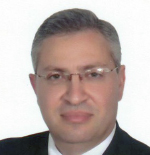 Mr Hosam Refai has studied Egyptology and Tourism at Helwan, Basel and Vienna universities. He received his PhD in 1998 and worked as a lecturer at Helwan University in Cairo. From 2001-2009, he was an Assistant Professor and Chair of the Department of Tourism, Mass Communication and Fine Arts at the University of Bahrain. He became Professor at Helwan University in 2008 and vice-dean of the Faculty of Tourism and Hotel Management in 2009, and has been the dean of the faculty since 2012. In 2011, he started integrating Heritage and Museum Studies as a new academic discipline at Egyptian universities, initiated by the joint master’s programme ‘Heritage Conservation and Site Management’ with BTU, Cottbus-Senftenberg, where he is the programme coordinator. In 2013, he initiated the master’s programme ‘Museum Studies’ that will be turned into a dual degree programme with the University of Würzburg in the coming academic year 2015/2016.
Mr Hosam Refai has studied Egyptology and Tourism at Helwan, Basel and Vienna universities. He received his PhD in 1998 and worked as a lecturer at Helwan University in Cairo. From 2001-2009, he was an Assistant Professor and Chair of the Department of Tourism, Mass Communication and Fine Arts at the University of Bahrain. He became Professor at Helwan University in 2008 and vice-dean of the Faculty of Tourism and Hotel Management in 2009, and has been the dean of the faculty since 2012. In 2011, he started integrating Heritage and Museum Studies as a new academic discipline at Egyptian universities, initiated by the joint master’s programme ‘Heritage Conservation and Site Management’ with BTU, Cottbus-Senftenberg, where he is the programme coordinator. In 2013, he initiated the master’s programme ‘Museum Studies’ that will be turned into a dual degree programme with the University of Würzburg in the coming academic year 2015/2016.
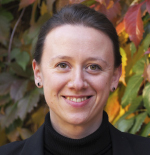 Ms Susann Harder obtained a graduate degree in the fields of Egyptology, Assyriology and Oriental Studies at Leipzig University. She also holds postgraduate qualifications in World Heritage Studies from BTU Cottbus-Senftenberg. Her professional and personal field of interest lies with public participation in heritage preservation and management.
Ms Susann Harder obtained a graduate degree in the fields of Egyptology, Assyriology and Oriental Studies at Leipzig University. She also holds postgraduate qualifications in World Heritage Studies from BTU Cottbus-Senftenberg. Her professional and personal field of interest lies with public participation in heritage preservation and management.
Since 2013, she has coordinated the international master programme “Heritage Conservation & Site Management” at BTU Cottbus-Senftenberg, Germany. The programme is implemented in close cooperation with Helwan University, Cairo, the German Archaeological Institute and the German Academic Exchange Service.
Both during and after her studies at Cottbus, Ms. Harder was involved in a cooperation project between BTU Cottbus and the German Archaeological Institute. This project aimed at the development of a site management plan for Göbekli Tepe, a Prehistoric archaeological site in Turkey. In addition, she has contributed to another project which also aims at the development of a strategic management plan for the historic Circular Villages in Wendland, Germany. Additionally, she works as a freelancer for Institute for Heritage Management (IHM) Cottbus.
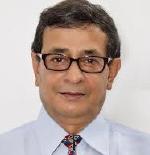 Mr Biswajit Som is a director of a structural consulting engineering firm in Kolkata, India named EISPE. The firm specialises in structural restoration and preservation of historic sites. He is also an honorary visiting professor in the Department of Construction Engineering at Jadavpur University. He teaches undergraduate and graduate courses on steel structure and rehabilitation and restoration of structure with an emphasis on masonry. He has published a number of academic papers and reports on heritage structure and restoration.
Mr Biswajit Som is a director of a structural consulting engineering firm in Kolkata, India named EISPE. The firm specialises in structural restoration and preservation of historic sites. He is also an honorary visiting professor in the Department of Construction Engineering at Jadavpur University. He teaches undergraduate and graduate courses on steel structure and rehabilitation and restoration of structure with an emphasis on masonry. He has published a number of academic papers and reports on heritage structure and restoration.
Mr Som has been engaged in different restoration projects. He has gained hands-on experience on condition assessment and restoration work on various projects including a 300 year-old Armenian church, and in a number places around India including Kolkata, Chennai and Berhampur. Recently, he completed detailed condition studies on Town Hall Kolkata, a 200 year-old heritage site, and Tallah Tank, a 100 year-old overhead reservoir in British India.
Following the 2011 Sikkim earthquake, as a structural restoration expert, Mr Som was involved in many restoration and rehabilitation projects in the region. More recently, after the devastating Nepal earthquake in April, he visited the Sikkim-Nepal border to assess the condition of the old suspension bridge site and an historic Tashiding monastery.
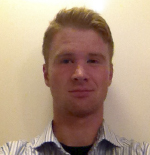 Mr Borgos holds a master degree in Cultural Heritage from NTNU, Norwegian University of Science and Technology, Trondheim Norway 2009. He also has taken several courses in practical crafts such as surface treatment, documentation of wooden buildings and traditional use of lime.
Mr Borgos holds a master degree in Cultural Heritage from NTNU, Norwegian University of Science and Technology, Trondheim Norway 2009. He also has taken several courses in practical crafts such as surface treatment, documentation of wooden buildings and traditional use of lime.
Since 2011, he has worked for Røros Municipality as a Cultural Heritage Manager and his associated role and responsibilities include matters related to World Heritage such as legal, administrative, and financial matters as well as cultural landscapes and building preservation. Since August 2012, he also works as a Project Manager for The Outhouse project.
Prior to this appointment, he worked for the Norwegian Cultural Heritage Fund as an Executive Officer in the period 2009-2011 and in the same period also worked for Oppland County in Norway as a Consultant related to cultural heritage.
In 2015, Mr Borgos is assigned as a Board Member of ICOMOS Norway and He also is a Voting Member of the ICOMOS Norway Training committee since 2014.
He was born on April 3 1985 in Røros; a world heritage site in the middle of Norway and currently lives on a small farm 10 kilometers outside the city of Røros where he breeds cattle of the local breed Røros cow.
1. Programme.
2. Advocating for the Training of Emerging Heritage Professionals by Mr Mario Santana Quintero
3. Introducing Heritage Management as an Academic Discipline in Egypt by Mr Hosam Refai and Ms Susann Harder
4. Challenges of Skill Development for Preservation of Built Heritages in India by Mr Biswajit Som
5. The Outhouse project by Mr Magnus Borgos
6. A selection of photographs (links to flickr):![]()